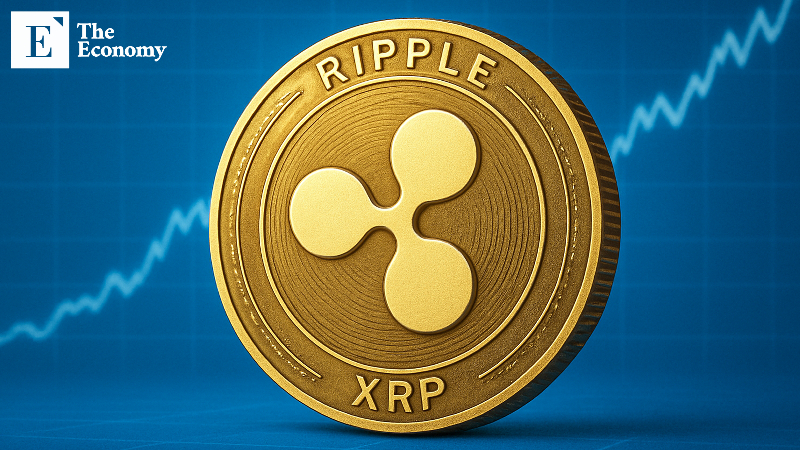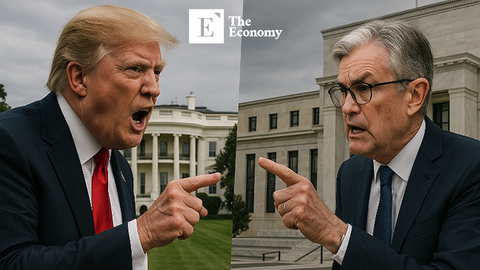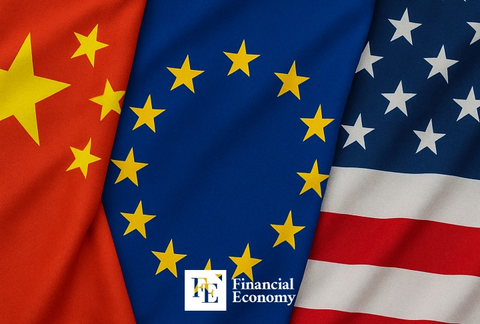Input
Changed
Ripple expands its influence through partnerships with international financial institutions. Launches stablecoin RLUSD to push for entry into regulated finance. U.S. banking sector warns against granting banking licenses to crypto firms.

Ripple, a blockchain-based payments company, is rapidly gaining traction in the global financial landscape. The firm is strengthening partnerships with international financial institutions—including the International Monetary Fund (IMF)—and is pushing aggressively to obtain a banking license as it seeks full integration into the regulated financial system. These efforts are also boosting the visibility and adoption of its digital assets, including XRP and RLUSD, Ripple’s U.S. dollar–denominated stablecoin.
Ripple Joins IMF High-Level Advisory Group
On July 23 (local time), crypto-focused outlet EtherNews reported that Ripple has joined the International Monetary Fund’s High-Level Advisory Group on Fintech, further strengthening its presence within the global financial system. Ripple’s appointment signals formal recognition by the IMF of the company’s expertise and technological leadership in the fintech space. According to Ripple’s internal documents, the firm is expected to contribute policy recommendations for small island nations, advise on system architecture, and support initiatives to improve cross-border remittance systems.
Ripple’s collaboration with international financial institutions is not limited to the IMF. The company is actively participating in the Bank of England’s next-generation Real-Time Gross Settlement (RTGS) system research initiative, known as the Accelerator Program. Ripple was also a member of the U.S. Federal Reserve’s Faster Payments Task Force, contributing to discussions on upgrading national payment infrastructure. Additionally, Ripple has signed a cross-border payments technology agreement with the Saudi Arabian Monetary Authority.
As Ripple’s institutional presence grows, its native token XRP is experiencing a sharp upward trajectory. XRP recently surged to an all-time high of $3.65 (approx. ₩5,074), pushing its market capitalization to around $205 billion (approx. ₩285 trillion). That valuation surpasses major global corporations such as Uber, Siemens, AT&T, and Blackstone. Analysts say that if this momentum continues, XRP could soon challenge megacaps like HSBC and Toyota, marking a significant shift as digital assets begin to rival traditional financial powerhouses.
Ripple Seeks U.S. Banking License in Bid for Financial Integration
Ripple is accelerating its push beyond institutional partnerships toward direct participation in the financial services sector. On July 2, Ripple Labs CEO Brad Garlinghouse announced via social media that the company has formally applied for a national bank charter with the U.S. Office of the Comptroller of the Currency (OCC). “If approved, we will be subject to both state and federal oversight,” Garlinghouse wrote, calling the move “a new and distinctive benchmark of trust in the stablecoin market.”
According to Ripple Labs’ charter application, the company aims to launch a federally chartered national trust bank without FDIC insurance and to secure a central bank account with the Federal Reserve. The proposed entity—Ripple National Trust Bank—would provide custody and reserve management services for RLUSD, Ripple’s U.S. dollar–backed stablecoin. Jack McDonald, CEO of Ripple subsidiary Standard Custody and Trust, has been tapped to lead the new institution.
Should Ripple receive OCC approval and officially enter the regulated banking system, analysts expect a major shake-up in the U.S. stablecoin market. Because stablecoins are inherently tied to trust and regulatory credibility, licensed financial institutions enjoy a distinct competitive edge. According to crypto ratings firm Bluechip, news of Ripple’s bank charter application helped propel RLUSD to the No. 1 spot among stablecoins, reinforcing its image as a “safe and regulated” digital asset.

U.S. Banking Sector Pushes Back Against Ripple’s Charter Bid
Major U.S. banking associations are pushing back strongly against efforts to grant national bank charters to cryptocurrency firms like Ripple. According to multiple media reports, the American Bankers Association (ABA) and the Independent Community Bankers of America (ICBA) recently submitted a joint letter to the OCC, urging the agency to delay approval of banking licenses for Ripple, Circle, and similar companies. The groups cited a lack of transparency in the public portions of the applications and warned that insufficient information has been provided for the public to fully understand these firms’ business models or assess potential risks.
The banking industry has also raised doubts about whether crypto firms can meet the custodial standards required of national trust banks. Critics argue that companies primarily offering custody of digital assets and related services may not qualify under OCC requirements. Under U.S. law, national trust banks are expected to perform fiduciary duties such as trust and estate management, and the OCC has indicated that mere safekeeping of digital assets does not meet that standard.
Banking officials further warned that granting full banking licenses to digital asset custodians would mark a significant departure from existing regulatory frameworks and could set a precedent with far-reaching implications for the broader banking system. Some experts have also called for greater transparency in the OCC’s charter review process, emphasizing the need for clearer disclosures regarding the operational plans of crypto firms seeking banking privileges.





















